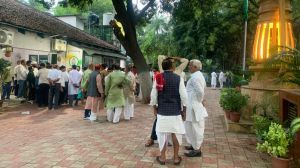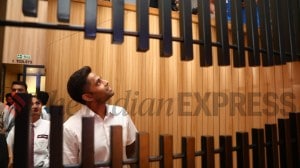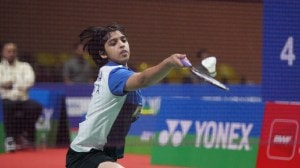Israel bid to kill Hezbollah official sparks tension
BEIRUT, FEBRUARY 5: Tension in Lebanon went up a notch Friday, after Israel made a failed attempt to assassinate a top Hezbollah commander...

BEIRUT, FEBRUARY 5: Tension in Lebanon went up a notch Friday, after Israel made a failed attempt to assassinate a top Hezbollah commander, prompting the guerrilla group to warn it would respond at a time of its own choosing.
Six Lebanese civilians, including a mother and her two children, were wounded in the attack by Israeli Apache helicopters on a car in which the Hezbollah commander was travelling outside the Israeli-occupied border zone.
Hezbollah issued a statement saying its officer had managed to get out of the car between the two missiles. It described the raid as a "flagrant violation" of the unwritten April 1996 Israeli accord with Lebanese guerrillas by which both sides refrain from attacking civilians.
"This will not go unanswered," it said, adding that "the resistance will choose the place and proper means (to respond), and will find a way to put an end to the Zionist excesses." Israeli television reported that the attempted assassination was in retaliation for recent killings of Israelisoldiers and the second-in-command of its proxy South Lebanon Army, Akel Hashem, who was blown up by a Hezbollah bomb Sunday.
Three Israeli soldiers were killed the next day in an attack on their patrol. "The target that was chosen in this week’s cabinet meeting was the Hezbollah commander of the western sector of the zone, the equivalent to Akel Hashem," the television’s military correspondent said. "When the results of the attack were revealed the Prime minister reacted angrily when he heard that the Hezbollah militiaman who was supposed to be killed came out alive," he added. The target has not been named, and there have been contradictory accounts as to his identity and condition. A UN source told AFP the man was Haj Khalil Harb, and said he had been injured, but a Lebanese security service official denied it was Harb, and said the man was unhurt.
Hezbollah refused to comment when contacted by AFP. In addition to the Apache raid, Israeli warplanes carried out three other attacks Friday. In the first,a plane fired a missile in between the villages of Shukin and Jebsheet just across from the central sector of the occupied zone. They carried out two additional raids in the early evening, firing a total of four missiles at the hamlet of Mazraat Oqmata in the Iqlim al-Tuffah hills beginning at 18:00 (16:00 GMT), Lebanese police said, without giving details of casualties. In Israel, a military spokeswoman confirmed the raids. "All our planes returned safely to base," she added. In its first raid, Israel hit the Iqlim al-Tuffah, without causing any casualties and also bombarded the Nabatiyeh region, damaging a house in Kfar Rumman.
Those operations came after Hezbollah claimed two attacks on Israeli positions at Al-Azzyeh and their stronghold at the medieval Beaufort Castle. The Syrian- and Iranian-backed guerrillas said in a statement there had been "losses" in attacks on positions in the central sector. The SLA confirmed two of their positions had been bombarded but said there had been no casualties.Security services in southern Lebanon said the evening raids came after Hezbollah attacked an Israeli position at Bir Kallab, overlooking the Iqlim al-Tuffah. They did not say whether there had been any casualties. Hezbollah said its fighters attacked Bir Kallab with automatic weapons and anti-tank rockets, adding that it had been hit.
Bir Kallab is just below Sojud, a position abandoned at dawn by Israel’s South Lebanon Army militia ally, for what the Israeli Army said were "operational reasons," adding that SLA troops had been transferred to two other nearby positions. Lebanese Prime Minister Salim Hoss said he welcomed any Israeli pullback from Lebanon, while Hezbollah said the evacuation was a new victory.
As tension heightened, an Israeli Army spokeswoman said that the Army had ordered all bomb shelters just inside the Jewish state’s northernborder to be opened but that residents had not been asked to move into them and there was no state of alert. An AFP correspondent in the northern Israeli town ofKiryat Shemona reported that the atmosphere was tense and streets were deserted, with some residents having fled South in case of attack from Lebanon.
Photos






- 01
- 02
- 03
- 04
- 05

























